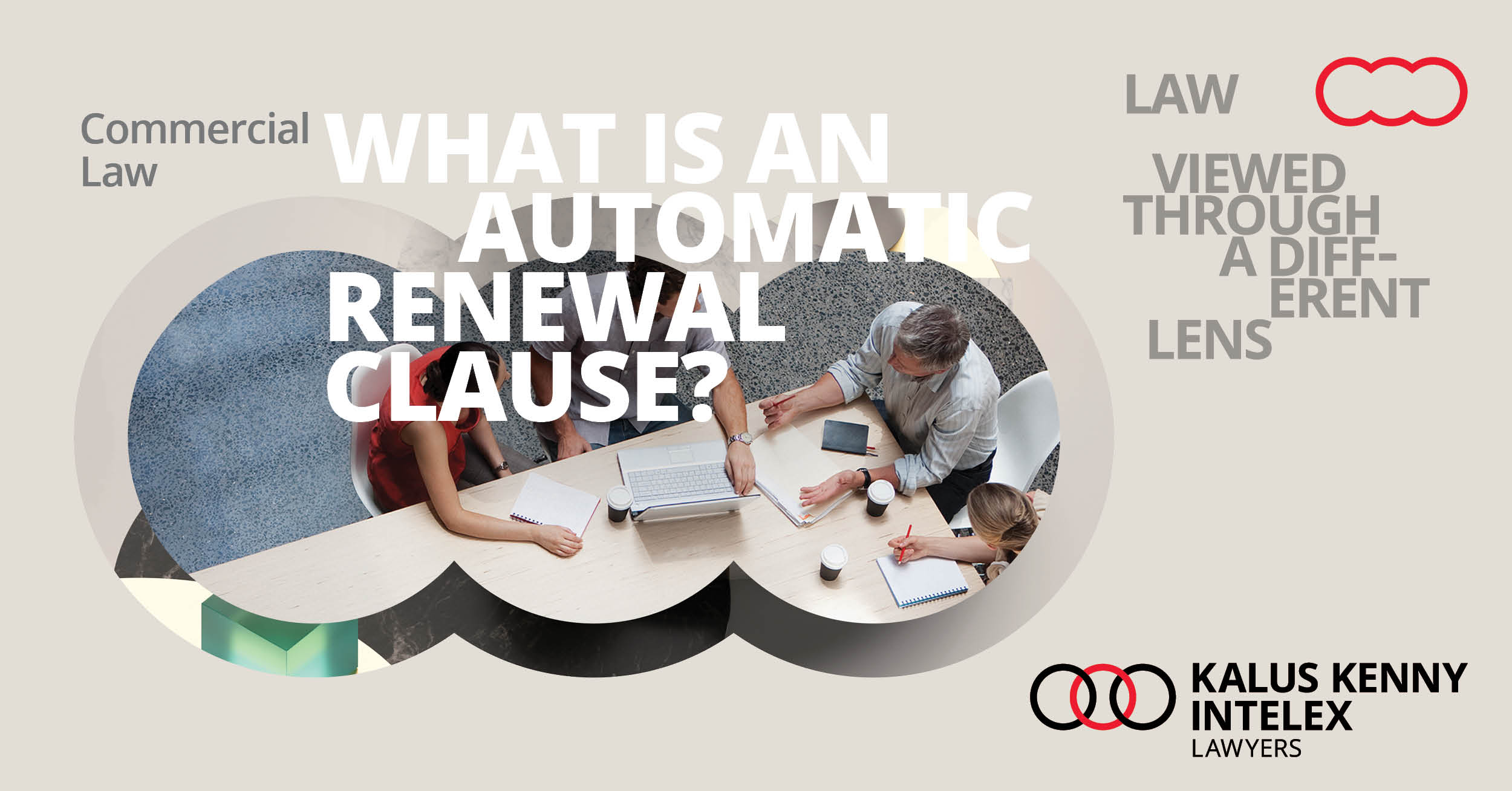Have you been caught out and missed the date to terminate or renew an agreement? We have some practical tips about how two common renewal clauses work and what you can do to avoid being caught out again.
Most agreements will specify how long that agreement will remain in force. This is known as the term of the agreement.
Generally speaking, an agreement will expire at the end of the term, after which time the parties will no longer be bound by it (or at least most of it – as sometimes some obligations, such as confidentiality obligations, may continue even after the expiry of the agreement).
However, what happens where one or both parties want the agreement to continue even after the term has expired?
In this instance, a clause can be included in the agreement to allow for the agreement to be renewed and continue after the initial term has expired.
One such clause is an “automatic renewal clause”. As the name suggests, this clause typically allows for an agreement to be renewed or extended automatically for an additional term (or other specified period of time).
Another way to extend an agreement can be to provide one party with the right to renew the agreement for a further period of time. These are often called an “option to renew”.
While both clauses seek to extend the term of an agreement, there are some notable differences (and dangers) between them, and it comes down to the parties to determine which approach is best suited to their particular circumstances.
Here are some of the typical key differences and considerations in the operation of these clauses:
Operation
Automatic renewal clause
An automatic renewal clause will (usually) continue to operate indefinitely until the agreement is terminated, without any action required by either party for this to occur.
This means that the agreement will just continue to rollover automatically for a further term until the agreement is terminated or notice is given by one party (within a specified period) that it does not wish for the agreement to renew.
For example, an agreement with an initial term of 1 year may provide that it automatically renews for a further year at the end of each subsequent year.
Option to renew
An option to renew works by granting a party with the right (but not an obligation) to renew the agreement at the end of the initial term. The agreement will expire at the end of the further term(s).
For example, a commercial lease with an initial term of 5 years may include the option for 2 further terms of 5 years each, meaning the total term (if all options were exercised) would be 15 years.
Parties
Automatic renewal clause
The clause does not grant a right to any particular party to renew the agreement, rather the agreement will just renew automatically at the end of each term.
Option to renew
The option to renew/extend the agreement for a further term is a right that is usually granted to one party of the agreement for them to exercise if they wish.
Is notice required?
Automatic renewal clause
Neither party is required to give notice or do anything in order for the agreement to renew at the end of the term.
However, often these clauses allow for either party to prevent the agreement from automatically renewing by providing written notice to the other party (within a specified period of time) that they do not wish for the agreement to renew.
Automatic renewal clauses can also be drafted in a way that the renewal is contingent on an event occurring, such as a party meeting certain key performance indicators during the previous term.
Option to renew
These clauses do not operate automatically and require the party (who has the right) to exercise the option in order for the agreement to be renewed at the end of the then current term.
If this notice is not given in accordance with the agreement, the agreement will not be renewed and will expire at the end of the term.
When does notice need to be given?
Automatic renewal clause
These clauses usually:
- allow for one party or both parties to give notice that they do not wish the agreement to renew; and
- set out certain strict timeframes by when such notice needs to be given.
For example, a party may need to give notice of not less than 3 months before the expiry of the then current term. If this timeframe has passed, the agreement will automatically renew at the end of the then current term and the parties will continue to be bound.
Option to renew
Similar to automatic renewal clauses, an option to renew clause will often specify a time frame by when, or within which, a party can or must give notice that they intend to exercise the option.
Failure to do so may mean that the right to renew the agreement is lost and the agreement will expire at the end of the term.
For example, the agreement may specify that notice of the party’s intention to exercise the option must be given during a period that is no earlier than 6 months before the end of the term and no later than 3 months before the end of the term.
If you only take one thing away from this article, it’s that you should be diarising these important dates provided for in your agreements, including not only the expiry date of the current term of the agreement, but also any dates by which notice must be given in order to not have the agreement automatically renew.



